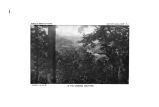| OCR Text |
Show 214 MYTH8 OF THE CHEROKEE [ ETH. AXN. 19 of cattle, and whose Indian wife had learned to make butter and cheese ( Travels, p. 347). In 1796 Hawkins mentions meeting two Cherokee women driving ten very fat cattle to market in the white settlements ( manuscript journal, 1796). Bees, if not native, as the Indians claim, were introduced at so early a period that the Indians have forgotten their foreign origin. The De Soto narrative mentions the finding of a pot of honey in an Indian village in Georgia in 1540. The peach was cultivated in orchards a century before the Revolution, and one variety, known as early as 1700 as the Indian peach, the Indians claimed as their own, asserting that they had had it before the whites came to America ( Lawson, Carolina, p. 182, ed. 1860). Potatoes were introduced early and were so much esteemed that, according to one old informant, the Indians in Georgia, before the Removal, " lived on them." Coffee came later, and the same informant remembered when the iull- bloods still considered it poison, in spite of the efforts of the chief, Charles Hicks, to introduce it among them. Spinning wheels and looms were introduced shortly before the Revolution. According to the Wahnenauhi manuscript the first among the Cherokee were brought over from England by an Englishman named Edward Graves, who taught his Cherokee wife to spin and weave. The anonymous writer may have confounded this early civilizer with a young Englishman who was employed by Agent Hawkins in 1801 to make wheels and looms for the Creeks ( Hawkins, 1801, in American State Papers: Indian Affairs, i, p. 647). Wafford, in his boyhood, say about 1815, knew an old man named Tsl'nawl on Young- cane creek of Nottely river, in upper Georgia, who was known as a wheelwright and was reputed to have made the first spinning wheel and loom ever made among the mountain Cherokee, or perhaps in the Nation, long before Wafford's time, or " about the time the Cherokee began to drop their silver ornaments and go to work." In 1785 the commissioners for the Hopewell treaty reported that some of the Cherokee women had lately learned to spin, and many were very desirous of instruction in the raising, spinning, and weaving of flax, cotton, and wool ( Hopewell Commissioners' Report, 1785, American State Papers: Indian Affairs, i, p. 39). In accordance with their recommendation the next treaty made with the tribe, in 1791, contained a provision for supplying the Cherokee with farming tools ( Holston treaty, 1791, Indian Treaties, p. 36, 1837), and this civilizing policy was continued and broadened until, in 1801, their agent reported that at the Cherokee agency the wheel, the loom, and the plow were in pretty general use, and farming, manufacturing, and stock raising were the principal topics of conversation among men and women ( Hawkins manuscripts, Treaty Commission of 1801). ( 32) COLONEL RETURN J. MEIGS ( p. 84): Return Jonathan Meigs was born in Mid-dletown, Connecticut, December 17, 1734, and died at the Cherokee agency in Tennessee, January 28, 1823. He was the first- born son of his parents, who gave him the somewhat peculiar name of Return Jonathan to commemorate a romantic incident in their own courtship, when his mother, a young Quakeress, called back her lover as he was mounting his horse to leave the house forever after what he had supposed was a final refusal. The name has been handed down through five generations, every one of which has produced some man distinguished in the public service. The subject of this sketch volunteered immediately after the opening engagement of the Revolution at Lexington, and was assigned to duty under Arnold, with rank of major. He accompanied Arnold in the disastrous march through the wilderness against Quebec, and was captured in the assault upon the citadel and held until exchanged the next year. In 1777 he raised a regiment and was promoted to the rank of colonel. For a gallant and successful attack upon the enemy at Sag harbor, Long island, he received a sword and a vote of thanks from Congress, and by his conduct at the head of his regimen tat Stony point won the favorable notice of Washington. After the close of the Revolution he removed to Ohio, wrhere, as a memberof the territorial legislature, he drew up the earliest code of regula- |































































































































































































































































































































































































































